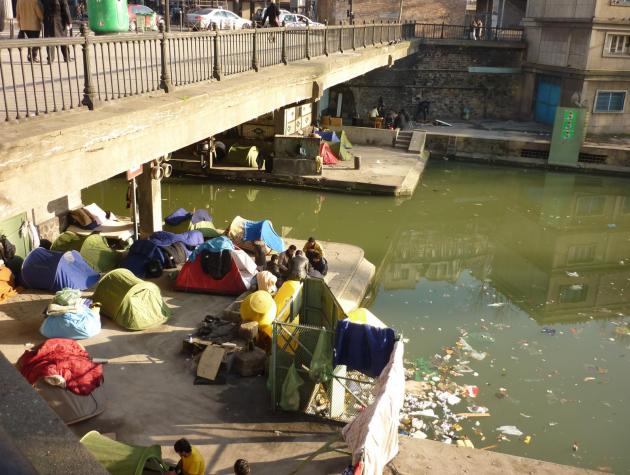GEG WP 2008/44 International Cooperation in the Global Refugee Regime
Full Title: International Cooperation in the Global Refugee Regime
Author: Alexander Betts
Type: GEG Working Paper 2008/44
Abstract
This article takes a broadly liberal institutionalist approach to explore the substantively important and neglected issue of international cooperation in the global refugee regime. It seeks to explain the nature of the cooperation problem in the global refugee regime and the conditions under which that cooperation has historically been overcome. The article argues that the dominant conception of the refugee regime as characterised by a Prisoner’s Dilemma game is misrepresentative because it fails to capture the asymmetric power relations in the regime. Given that the majority of the world’s refugee are in the South and the regime sets out few norms obligatingNorthern states to contribute to the protection of refugees who are not on their territory, the regime is more appropriately characterised by the game theoretical analogy of a Suasion Game. In order to examine the conditions under which the Suasion Game logic has historically been overcome, the article explores the four main examples of ad hoc bargaining processes convened by the United Nations High Commissioner for Refugees (UNHCR) between 1980 and 2005 to facilitate international cooperation to address longstanding refugee situations. It argues that international cooperation has taken place under two conditions. Firstly, Northern states have needed to have linked interests in other issue-areas – such as security, immigration, and trade – that result from interdependence between refugee protection in the South and consequences in other issue-areas in the North. Secondly, though, UNHCR has been an important actor in facilitating issue-linkage within bargaining because, where interdependence has been complex, it has played a role in recognising and effectively communicating these interdependencies to Northern states. The article suggests that the analysis has wider theoretical implications by highlighting the role that the recognition and effective communication of complex interdependencies across issue-areas can play in enabling weaker actors (such as IOs and Southern states) to influence stronger actors’ strategies while working within the constraints of their existing preference structures.
Author Bio
Dr Alexander Betts is the Hedley Bull Research Fellow in International Relations at the University of Oxford, where he is also Director of the MacArthur Foundation-funded Global Migration Governance project, and a Fellow of Wadham College. He completed a D.Phil in International Relations at the University of Oxford. In addition, he holds a First Class honours degree in Economics from the University of Durham, and an MSc in International Relations and M.Phil in Development Studies (both with Distinction). He has won a number of academic awards including the Eugene Havas Memorial Prize, the European Association of Development and Training Institutes (EADI) prize for postgraduate research in development studies and the Babsybanoo Marchioness of Winchester Prize. He has previously worked in the Executive Office at UNHCR Headquarters in Geneva and as a consultant on refugee and migration issues for UNHCR, IOM and the Council of Europe. He is Senior Researcher at the Global Economic Governance Programme (GEG) and a Research Associate of the Refugee Studies Centre (RSC), the Centre for Migration, Policy and Society (COMPAS), and the Centre for International Studies (CIS).




